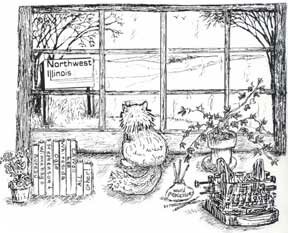Discover rewarding casino experiences. 
|
A link with home might lessen the profound horror. One could be normal in a letter home or a missive from there. Everyday things could be talked about by correspondence. Below is a letter written from a Union soldier at Chattanooga, Tennessee in 1863 to his brother, assumedly, in Indiana; Francis Marion Watkins to Thomas Tolliver Watkins. In 1862 many battles took place such as the fall of Forts Donelson, and Henry, Jacksonville and New Orleans captured by the Union. The Confederates won the Battle of Pittsburg Landing in southwestern Tennessee—Shiloh. At Shiloh this year there will be a re-creation of that battle to commemorate the history changing event. A long time re-enactor, our son-in-law will be part of the re-creation to pay tribute to the courage, determination, the honorable acts made to preserve the United States as one nation. The following letter was offered by Betty Dollinger, Lanark, who thought it of interest to PDQ Me readers. We appreciate the contribution, thanks. Read on. Tip your head to that long ago gathering of men. Lanark’s G.A.R. post was the Shiloh chapter. Chattanooga, Tenn., Nov. 19, 1863T.T. (Initials for Thorton Tolliver Watkins)Esteemed Brother, I grasp the present for the purpose of writing you a few lines. I can’t say I am particularly answering any of your letters as I am several behind, but you know I never pay any attention to that when writing home. When I get ready I do write. I write regardless of turn. Your letters I suppose have all come up. I received one today written in August. Whether you have received all of mine or not I can’t say. I hope however you have. I can’t think of the idea of spending ammunition on a letter for nothing. Today is in every sense of the word a pleasant day. The sun is shining bright. Everything looks bright and to put the climax on, the paymaster is here paying off the troops. The 57th, (57th Indiana Infantry Regiment) was payed this forenoon. I received for my share as usual $68. I already had a little on hand. Will send home about $50. I might send a little more but I feel mighty comfortable with a wad of greenbacks in my pocket, you know. This will leave me well and hoping it may find you enjoying as bountiful a portion of the same blessing as myself. The health here is generally very good. The boys are in fine spirits as a general thing. All are not only willing but anxious to try the Rebs on once again. Many of the boys are going to the Veteran Service. It suprises me, too, as we are on short rations and troops are always in bad humor when they have little to eat. There has been less fighting done today than for some time, I believe. I have heard but one or two shots from artillery today. That is a great rarity. There has scarcely been a moment for three weeks but what the roar of artillery could be heard. Preparation for fighting is being made with all speed imaginable. Guns of heavy caliber are being mounted. Fortifications are being thrown up. Pontoons made and provisions (in other words hard tack and sow belly) are being piled up to fall back on, you know. I think we will be ready in the course of one month to pitch into the rebs and show them some of the fruits of rebellion. The troops are on half and quarter rations. The idea is to get a little ahead. We could eat the rations as fast as they are brought in if we were a-mind to (if the General was willing) but you know we would then have nothing to fall back on. In one of your letters you seemed to think there was something wrong in the administration. I fear the wrong is in your own mind when you are finding fault with the way old Abe does business. Your head is wrong because he is an old standby. His removing Fremont was all right. The only wrong was in putting him in but Old Abe of course was not to blame for that as it was generally thought Fremont was a great man. His Missouri campaign was a perfect failure but he got so far ahead of the times that he was obliged to be removed before his plan was fully developed. He was reinstated and had a fair chance in the east but suffered himself, tricked and trumped on all hands. Old Stonewall (meaning General Jackson) played Fremont entirely out so of course necessity demanded his removal. I think all Fremont amounts to—he is a rich abolitionist that a great many people think is some pumpkin because others say so but not on account of anything wonderful he ever did. As to the retaining of Scofield I only have to say he is a tried man. His valor is well known to many and is not to be removed on account of anything in the shape of party whims. As to the removal of Rosencrans let me say his successor is none of your chickens but a man equal to any emergency. The entire arrangement of the western armies is one of the grandest things ever yet done in this entire military arrangement. Had it have been done long ago the dead of Chickamauga would not have been in vane but to the contrary. Southwestern rebellion would have been forever done for. Rosencrans is a very good General but Grant is much more competent in large matters. Rosencrans is great in little matters, Grant is great with big things. I was surprised to hear you talk about Grant’s being a drunkard. The accusation, I think, is entirely groundless. I have seen him riding the lines many times but I have never seen him intoxicated, but to the reverse he has every appearance of sobriety. But let that be as it may his works will tell of his worth. I have watched these things closely and pronounce old Abe a trusty fellow. The fault does not lay there nor with our Generals—it is in the people at home that put in their time finding fault because things aren’t done to suit them at the same time unwilling to do anything themselves. This is by no means a party fight. It is no giggling affair but the reverse, a gigantic struggle for the life of government and I am glad to know that Old Abe is determined that party faction shall not turn the tide. You will please to excuse the length and tenor of this message and write soon. I remains as ever your brother, Frank. (His name was Francis Marion Watkins)
|






